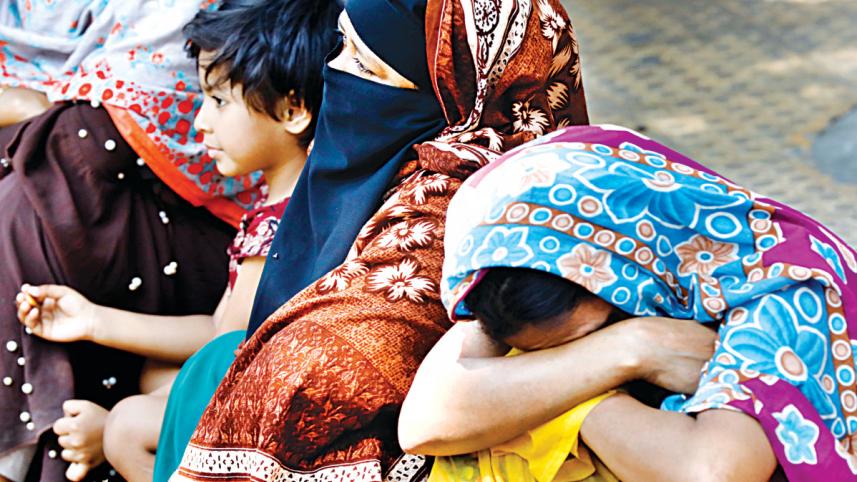Move to expand TCB coverage, reduce VAT: Welcome but temporary fixes

There has been no starker reminder of people's helplessness in recent times than men and women standing in long lines behind the trucks of Trading Corporation of Bangladesh (TCB), waiting to get their hands on subsidised essential goods. The tragic footages of people fighting each other for a packet of sugar or clinging onto moving trucks as they pass by have humbled us into the realisation that the celebratory discourses around economic growth and post-pandemic recovery have not translated into prosperous lives for a vast majority of the country's population. In fact, with prices of goods spiralling out of control over the past few months—and threatening to go up even further as Ramadan approaches—it's no longer just the working class who are struggling to make ends meet. We thus appreciate the government's decision to expand TCB coverage and to introduce the trucks at the union level.
Currently, TCB trucks sell essentials at subsidised prices in metropolitan areas, and at times at the district level. As we have seen in the past few weeks, the demand for subsidised goods is much higher than the current provision, and while the promise to include more people is encouraging, it is by no means enough. With a large number of people grappling with poverty, and even middle-class families struggling to maintain balanced diets, there needs to be a proper assessment of what and how much people need to even get by, and a mechanism to ensure that those in most need are getting the goods. More trucks need to be introduced in localities with concentration of low-income groups.
At the same time, we cannot underscore enough that the government must urgently find ways to bring the prices down, monitor the market, and ensure proper functioning of the supply chain.
The finance minister has also announced that the government would lower VAT and duties on essentials such as chickpeas, edible oil and sugar to keep the market stable. While that would be welcome news, reports suggest that the announcement may, in fact, be misleading. For instance, there is no import duty on chickpeas and lentils to begin with, and the NBR last week reduced regulatory duty on raw sugar import until May 15 this year. We hope the government will issue the notification regarding VAT waiver of edible oil, and clarify the confusion regarding the tariff, tax and VAT structure on these essentials.
And lastly, the government must ensure that whatever steps it takes now and in the immediate future will actually help the end consumers, meaning the ordinary people—not the traders.



 For all latest news, follow The Daily Star's Google News channel.
For all latest news, follow The Daily Star's Google News channel.
Comments